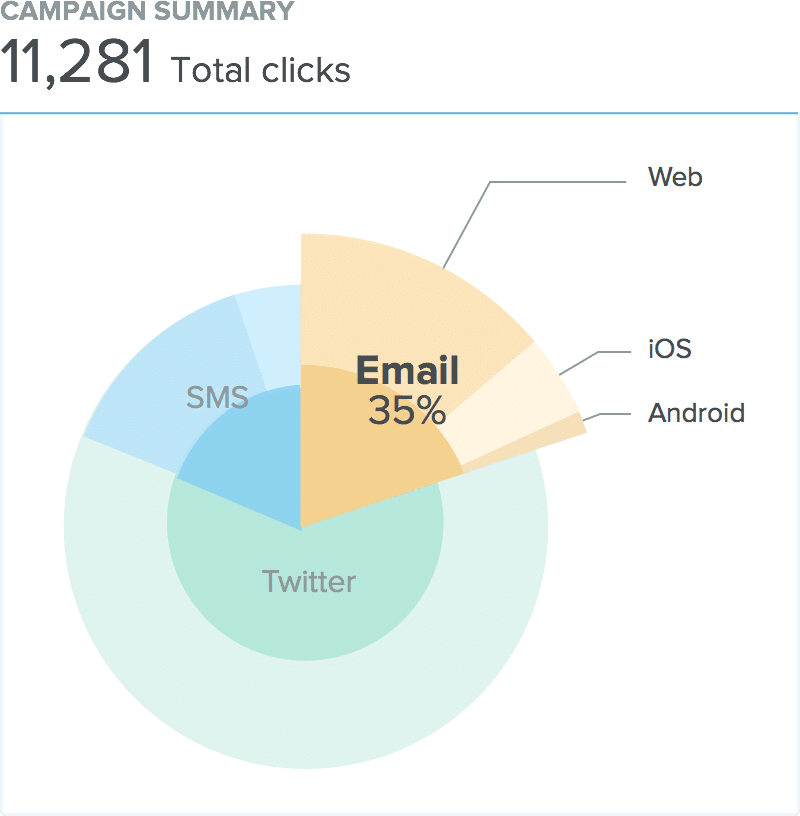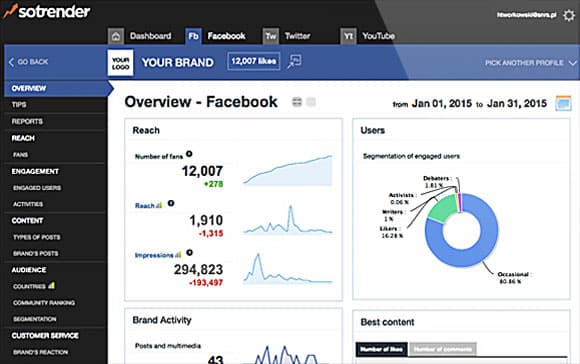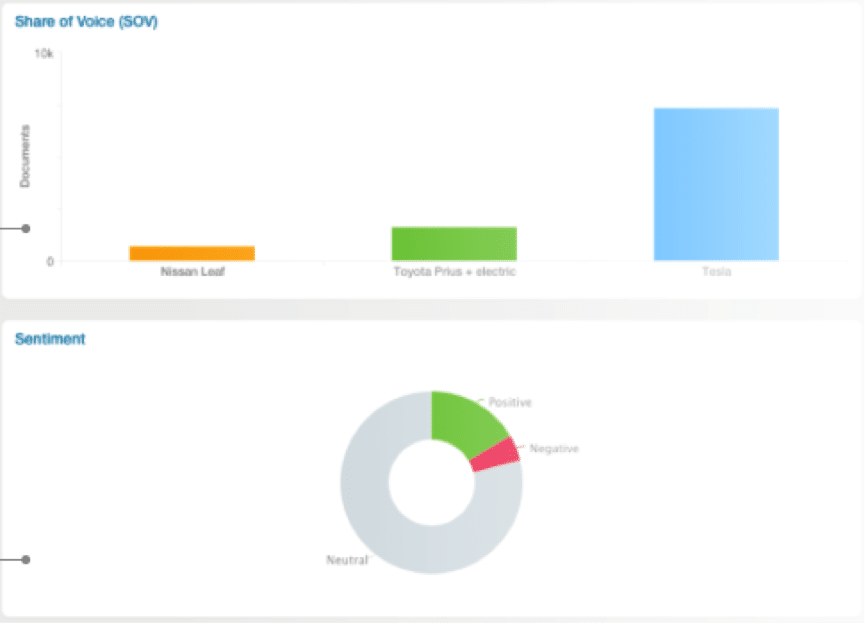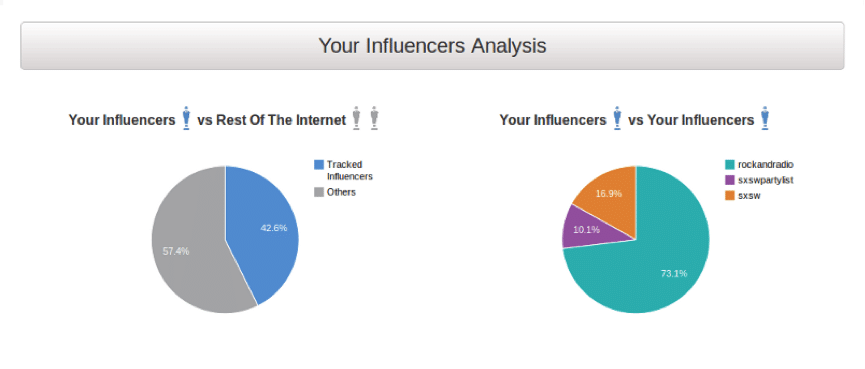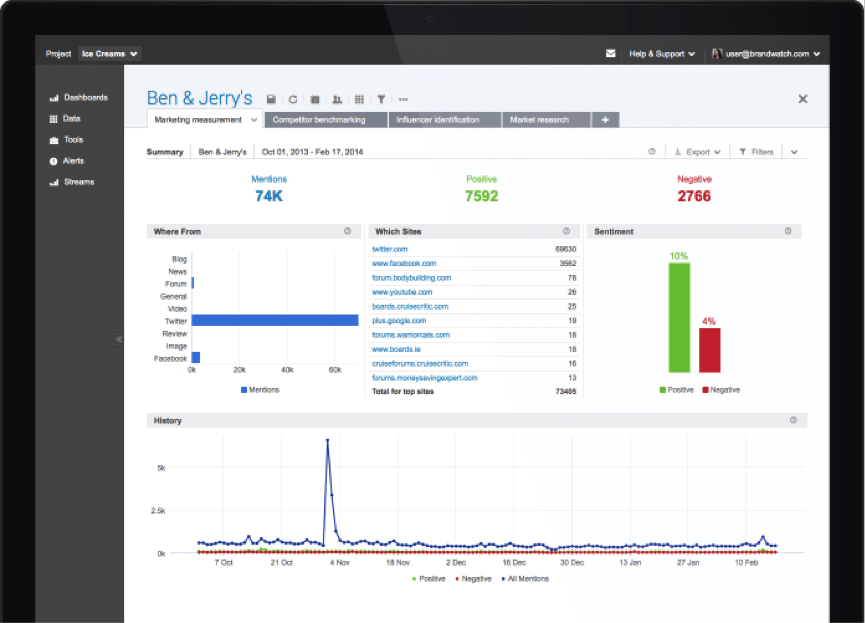Follow Lilach
How to measure your social media ROI
Even with all the amazing analytics tools available, most businesses and marketers struggle to measure their social media ROI. Which metrics matter and which don’t? What makes a social media strategy successful? In this post, I will talk about the ways that you can measure your social media ROI and success.

What is social media ROI and why you need to measure it
Vanity metrics vs. actionable metrics
Measuring social media goals: Traffic
Measuring social media goals: Conversions
Measuring social media goals: Brand Awareness
Measuring social media goals: Engagement
Useful tools for measuring social media ROI
Why do I need to measure my social media ROI?
[sc_fs_faq sc_id=”fs_faq9no1rlgi7″ html=”true” headline=”p” img=”” question=”What is social media ROI?” img_alt=”” css_class=”” ]Social media ROI is the return on investment a marketer/company gets back from their investment in social media marketing. [/sc_fs_faq]
Measuring your social media ROI is important for two main reasons:
- To figure out what isn’t working in your social media strategy and make changes accordingly
- To find out what is bringing in the best results so that you can focus more of your time and resources into getting even better results
[clickToTweet tweet=”Why you need to measure your #socialmedia #ROI via @lilachbullock” quote=”Why you need to measure your #socialmedia #ROI via @lilachbullock”]
Measuring your social media success
 What makes measuring your social media ROI so difficult is the fact that not all goals and statistics are easily quantifiable monetarily. In fact, most social media stats don’t really bring in any income directly. Think of engagement, for example. While it’s arguably one of the most important stats and a clear indicator of a social media campaign’s success, it doesn’t exactly bring in any income directly – or at least, not any that you can accurately calculate.
What makes measuring your social media ROI so difficult is the fact that not all goals and statistics are easily quantifiable monetarily. In fact, most social media stats don’t really bring in any income directly. Think of engagement, for example. While it’s arguably one of the most important stats and a clear indicator of a social media campaign’s success, it doesn’t exactly bring in any income directly – or at least, not any that you can accurately calculate.
The best way to go about measuring your social media success is to first and foremost, determine what your goals are. Only once you know what these goals are can you determine which metrics you need to measure in order to figure out your social media success.
Vanity metrics vs. Actionable metrics
When checking out your social media stats, it’s easy to be blinded by so-called “vanity metrics”:
- Follower numbers
- Number of likes
These types of stats might make you feel good about yourself – especially if you have lots of followers – but at the end of the day, they don’t really help you make any decisions regarding your social media strategy. They’re not relevant to your social media goals, can’t be measured and therefore do not help you establish ROI.
Instead of vanity metrics, focus instead on actionable metrics.
These are the metrics that can help you:
- Take action
- Make the necessary decisions that will help you improve your social media strategy
The main actionable metrics are:
- Engagement
- Traffic & clicks
- Brand awareness
- Conversions and leads
[clickToTweet tweet=”How to measure your #socialmedia #ROI via @lilachbullock” quote=”How to measure your #socialmedia #ROI via @lilachbullock”]
Goals
 As I mentioned earlier, it’s important to know what your goals are in order to be able to correctly measure your social media ROI and success. Your goal can be to:
As I mentioned earlier, it’s important to know what your goals are in order to be able to correctly measure your social media ROI and success. Your goal can be to:
- Get more traffic to your website
- Make more conversions
- Increase your brand awareness and reach
- Increase engagement on your social media platforms and better customer service
Now that you know what your goals are, you can more easily begin to measure your social media success.
That said, it’s important to set realistic expectations of your goals. Social media takes time to grow and there aren’t really any shortcuts that work in the long term.
Traffic
Social media can be a great tool for increasing your website and blog traffic. Traffic, thankfully, is one of the more straightforward social media goals that you can measure as the metrics are easier to track.
Custom URLs
One of the ways to track the traffic you’re getting from social media is to use one URL shortener for all of the links you share so that you can easily see exactly how many clicks each one is getting with their built-in analytics.
Custom URL analytics are quite limited though, so it’s best to use them in conjunction with Google Analytics’ social media traffic stats.
Best URL shorteners: Goo.gl, Bit.ly.
Personally, I much prefer Goo.gl to Bit.ly, because with Bit.ly, anyone can check your stats with just a simple hack: add a + to the end of any Bit.ly link.
Google Analytics
Google Analytics is the best way to track your social media traffic, in my opinion. Not only do you get more detailed analytics, you also get more actionable metrics.
To see your social media traffic, go to Google Analytics -> Acquisition -> Social -> Overview.
To get more in-depth results, go to Network Referrals, in order to see page views by social network, average session duration and pages per session.
This will give you a better insight into the type of traffic you’re getting from social media so that you will know if you’re achieving your traffic goals.
Traffic is not always about the numbers, but what visitors are doing once they’re on your website – are they spending enough time or just checking it out and leaving seconds later? Are they visiting more than one page?
Another useful feature is “Users Flow”. Here, you can see the paths that your social media website visitors are taking once on your website.
Conversions
Even more important than traffic, perhaps, is how many conversions you’re making from social media. Conversions can be more difficult to track and measure ROI, but it can be done, using Google Analytics.
Are your visitors taking action on your website?
- Sign up for the newsletter
- Watch a video
- Download an ebook/guide/freebie
- Read a particular article
- Visit the website for a particular amount of time
- Buy a product/service
- Sign up for a free trial
[clickToTweet tweet=”How to measure your #socialmedia #ROI via @lilachbullock” quote=”How to measure your #socialmedia #ROI via @lilachbullock”]
Whatever type of conversion you want to track, you can easily do it with the Google Analytics Goals function.
There are four main types of goals you can set up:
- Specific link/destination: is your social traffic visiting a particular page that you want them to?
- Duration and time spent: find out how many are spending over a particular set amount of time on your website
- Number of pages visited per session: find out the number of visitors visiting a set amount of pages during one session
- Event: track the visitors who perform a certain action on your website, such as viewing a video or downloading a guide
Once you’ve decided what types of conversion goals to create, you can also assign them a monetary value, which makes it infinitely easier to find out what your social media return on investment, is.
Under Goal Details, you’ll see you can turn on the “value” feature and enter any number you like. Selecting what the monetary value is for each conversion is completely up to you.
The best way to go about this, in my opinion, is to create an average value. For example, for every ten people visiting a particular page that you’ve set up as a goal, how many of them convert? And based on the products and services you sell on your website, what would be the average sum spent by users on your website?
While setting this value will not give you the absolute, correct numbers, it will still give you a pretty good idea of how many conversions you’re making and what you’re potentially making from them.
For more information on how to create goals in Google Analytics, read my extensive post on it here.
Brand AwarenessBrand Awareness
 Many businesses are using social media because they want to improve their brand awareness and help grow their business to new heights. Social media offers a great way of connecting with new people and reaching whole new demographics without spending a fortune on advertising and other marketing techniques.
Many businesses are using social media because they want to improve their brand awareness and help grow their business to new heights. Social media offers a great way of connecting with new people and reaching whole new demographics without spending a fortune on advertising and other marketing techniques.
But how do you know when you’ve improved your brand awareness? The first answer that might come to mind is follower numbers; but we’ve already talked about how that is mostly a vanity metric, one that might make you feel good about yourself, but that doesn’t really help you make any decisions. While follower numbers can definitely help give you a better idea of your increase in brand awareness, there are more metrics that you can study to give you a clearer picture:
Influence: influence and increased awareness often go hand in hand; you can use a tool like Klout to find out your influence “score” and while the number itself might be more of a vanity number, the science behind is pretty good. The more your score improves, the more it shows that not only are you active on social media but also that you’re getting more comments, mentions and the like.
[clickToTweet tweet=”How to measure your #socialmedia #ROI via @lilachbullock” quote=”How to measure your #socialmedia #ROI via @lilachbullock”]
Social media followers vs. engagement: I’ve always stressed the importance of an engaged following, as opposed to a larger following, but one that doesn’t engage that often. When measuring your increase in brand awareness, instead of focusing on how many new followers you’re getting on social media, find out if your following and your engagement are both evolving.
Social media sentiment: Sometimes, it’s not just about increased brand awareness, but more of making sure a positive sentiment surrounds your brand. What is the sentiment surrounding yours? Are people talking about your business in a positive light, or pointing out imperfections? There are many analytics tools that provide some social media sentiment analysis, such as Meltwater.
New regions reached: one of the ways to determine if you’ve increased your brand awareness is to find out if you’re reaching new regions. There are numerous tools that you can use to track your social media audience, including geographically. For example, you can use the built-in analytics for your social networks, as they have some of the most accurate analytics and most major social platforms provide them.
Connections with social media influencers: the connections you make with social media influencers can be a sign of improved brand awareness, as well as help you increase awareness when they are supporting you and your business. Analyse your social media connections to find out how many influencer connections you have.
Engagement
Engagement is a more “special” goal than others; in a way, it’s both a metric and a goal and when you improve engagement on your social accounts, you also improve your chances of getting the other types of goals: the more engagement you get, the more traffic your website receives, the more conversions you make and the more your brand name grows in the digital world.
Engagement, thankfully, is also much easier to measure than some of the other goals, as you only have a few metrics to measure:
- increase in comments
- increase in shares and retweets
- increase in mentions
- increase in likes
[clickToTweet tweet=”How to measure your #socialmedia #ROI via @lilachbullock” quote=”How to measure your #socialmedia #ROI via @lilachbullock”]
Useful tools
There are so many different, great analytics tools out there, but here are some of my favourite:
Agorapulse
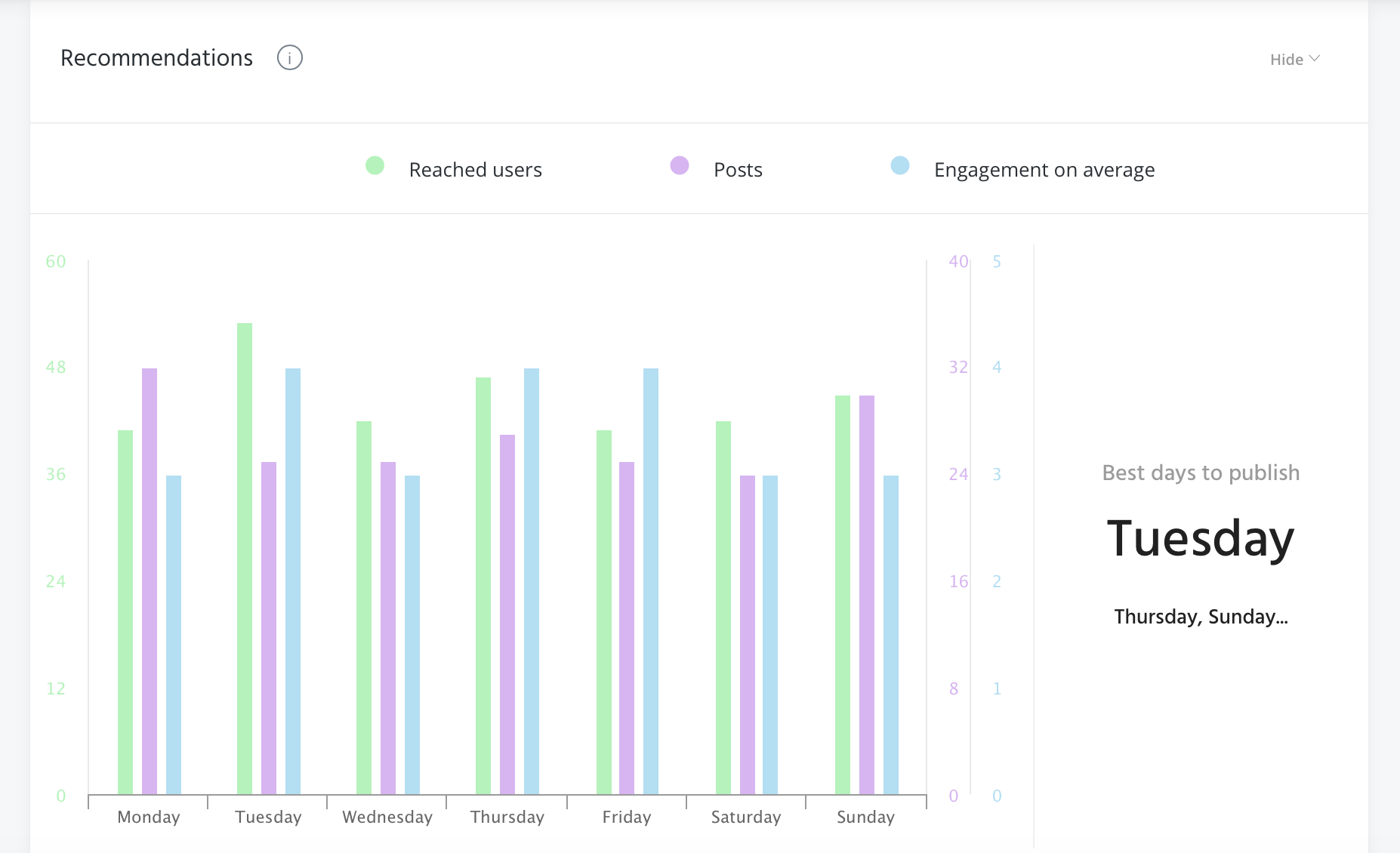
Agorapulse is primarily a social media dashboard, but their analytics are really good and their reports look great so it’s turned into one of my favourite tools for checking my social media analytics.
With Agorapulse, you get the metrics you need in order to track your social media goals:
- brand awareness
- engagement and publishing
- audience insights
- content
[clickToTweet tweet=”Measure your #socialmedia #ROI with @agorapulse via @lilachbullock” quote=”Measure your #socialmedia #ROI with @agorapulse via @lilachbullock”]
SoTrender
SoTrender is a tool I’ve only recently become familiar with, but I love the analytics they provide. They offer solutions for both small and big businesses, as well as small and big agencies.
SoTrender have detailed social media reports for Instagram, Facebook, Twitter and YouTube that measure the most important stats: engagement, content, your audience, customer service and even admin duties.
You can also set up automatic reporting with the data you need and get tips and recommendations based on your data.
[clickToTweet tweet=”Measure your #socialmedia #ROI with @sotrender via @lilachbullock” quote=”Measure your #socialmedia #ROI with @sotrender via @lilachbullock”]
Meltwater
Meltwater is a monitoring and analytics tool, but for the purpose of this article, we’ll only focus on its analytics features. It’s a particularly great tool for tracking your online brand awareness. For example, you can use it to track your media coverage over time, making comparisons on share of voice with the competition and figure out what the sentiment surrounding your brand is:
[clickToTweet tweet=”Measure your #socialmedia #ROI with @meltwater via @lilachbullock” quote=”Measure your #socialmedia #ROI with @meltwater via @lilachbullock”]
Hashtagify
Hashtagify is a tool for discovering hashtags, top influencers and for tracking Twitter and Instagram hashtags.
If you’ve created a hashtag campaign, use Hashtagify to track your success and get detailed reports:
[clickToTweet tweet=”Measure your #socialmedia #ROI with @hashtagify via @lilachbullock” quote=”Measure your #socialmedia #ROI with @hashtagify via @lilachbullock”]
Brandwatch
Brandwatch allows you to delve deeper into consumer’s minds so that you can find out key customer insights. Basically, you can use it to track consumer feedback, find out what social trends are happening in your niche that could affect your brand and figure out what the sentiment surrounding your product or business is.
What makes Brandwatch stand out is how powerful their social listening tools are. The insights they provide are very in-depth and have actionable metrics that can help you determine exactly what people are saying and the sentiment behind their social updates.
[clickToTweet tweet=”Measure your #socialmedia #ROI with @brandwatch via @lilachbullock” quote=”Measure your #socialmedia #ROI with @brandwatch via @lilachbullock”]
Conclusion
Measuring your social media success is not always easy or straightforward but it’s very important if you want to know if you’re on the right track and doing everything possible to improve your strategy.
What are your main social media goals? Which metrics do you think are most important to measure? Let me know in your comments and please share:)

Follow Lilach




